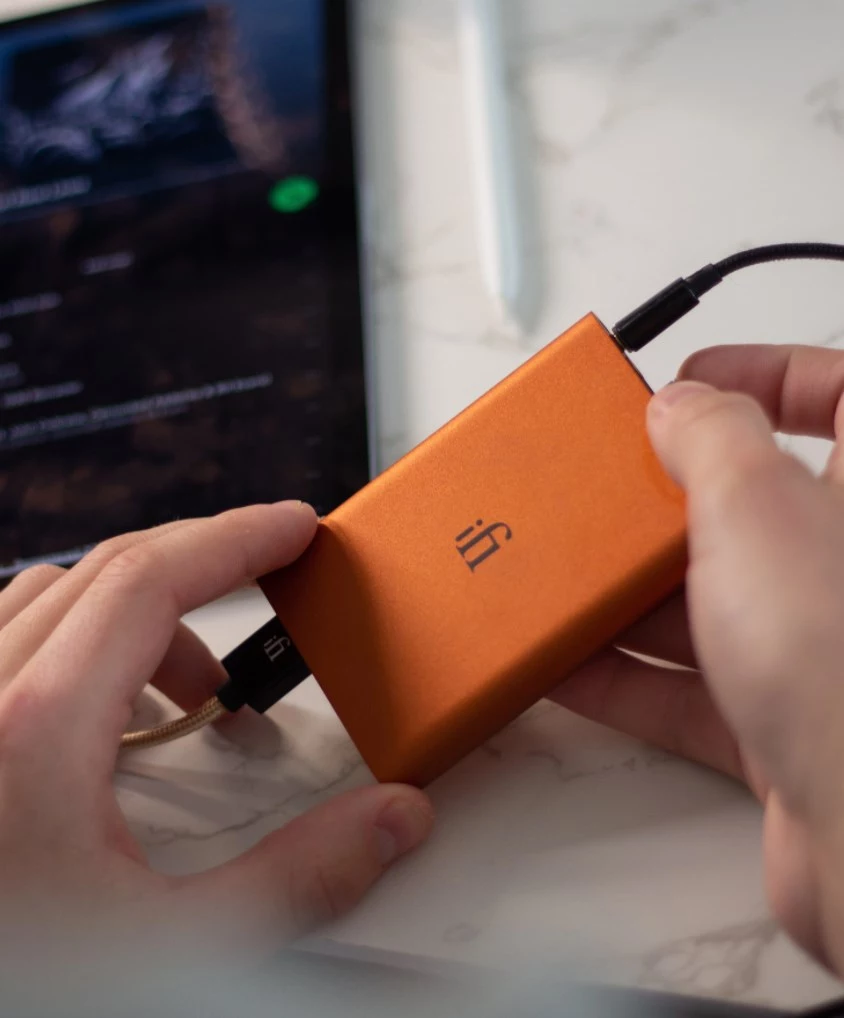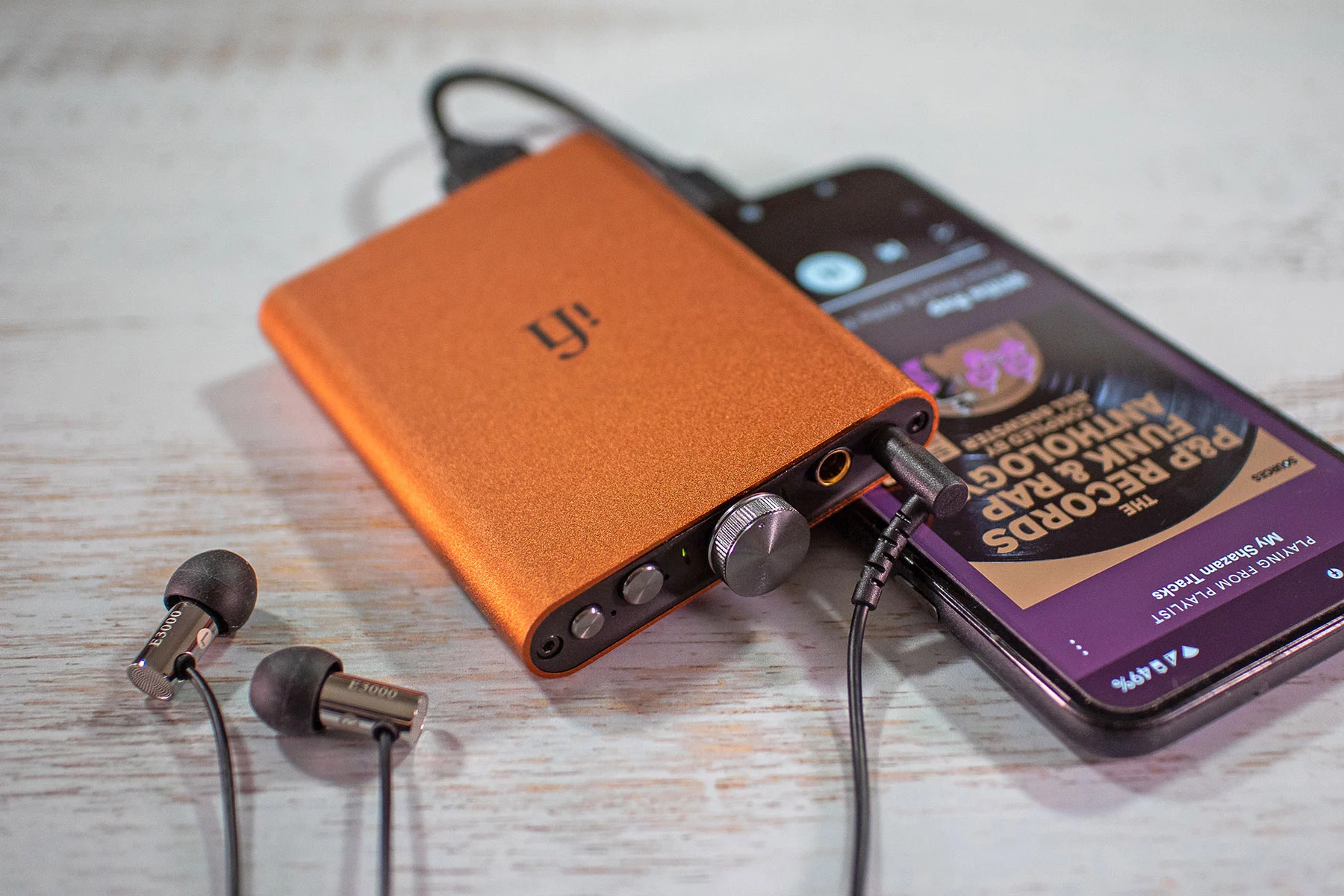Early last year, Brit audio specialist iFi launched a pocket digital-to-analog converter called the hip-dac, which the company claimed would treat listeners to a "sound as flavorsome and richly detailed as a delicious single malt." Now the hip-dac2 has arrived.
The job of DACs like this wee nip in your pocket is to help improve the audio coming from a cabled device like a smartphone, tablet or laptop and into a pair of headphones or earphones, often leveraging much higher spec circuitry than source devices could ever hope to employ. And such is the case with the hip-dac2.
iFi has again opted to combine its custom circuitry with a Burr-Brown DAC chip, which as before supports playback of PCM and DXD audio files at sampling rates of up to 374 kHz, and up to DSD256. Components elsewhere include a custom OV op-amp, TDK C0G class 1 ceramic capacitors, and a low-noise power supply from Texas Instruments.
The new unit now benefits from a 16-core XMOS chip for improved overall performance while enabling the device to tackle full MQA decoding, rather than merely acting as a renderer – which means that instead of only performing the final unfold, all stages are undertaken by the hip-dac2. MQA audio technology was developed to deliver the kind of sound quality you'd get from an original master recording in a file format that's small enough for streaming, and is used by platforms like Tidal to deliver high resolution wireless music to listeners.

The crystal clock, which has the job of removing digital distortion, has been upgraded as well, for the promise of a "purer, crisper sound," the hip-dac2 is said to be capable of handling even the most demanding of audiophile headphones, and a feature called PowerMatch at the amp stage increases the signal strength for headphones requiring more drive. There's also a function to up the bass response without bleeding into the midrange, something that could be particularly handy for earphones.
The hip-dac2 connects to a source device over USB 3.0 Type A (there's also a USB-C port for charging the 2,200-mAh battery), and listeners can plug ear candy in via an unbalanced 3.5-mm jack or balanced 4.4-mm Pentaconn output. It wears a striking orange aluminum jacket this time around, though a faux suede case in gray is available for folks who don't want to risk damage to or from a source device while out and about.
The iFi hip-dac2 measures 4 x 2.8 x 0.6 inches (102 x 70 x 14 mm) and tips the scales at 4.4 oz (125 g). It's available now for US$189.
Product page: hip-dac2







